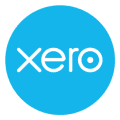
How to deal with invoice disputes as a freelancer or creative
As lockdown guidelines continue to ease and normality resumes, creatives and freelancers are likely to be seeing their cash flow patterns change and invoices starting to come in and out again as workloads increase.
The creative industry involves investing huge amounts of time and effort into your work. So when weeks or months go by without any payment for services, it can be discouraging. Not only that, but it can leave creatives with a significant financial burden and time wasted chasing invoices.
Fortunately, there are some things you can do to help reduce invoice disputes and encourage clients to pay on time.
Here are some common reasons why invoices get forgotten or delayed, and how you can go about reducing your risk of non-payment, to ensure invoices get paid properly in future.
1. Use online accounting software to keep track
To ensure your invoices get paid like clockwork and nothing is missed, ensure you keep an accurate log of the payments that are live. Cloud software such as Xero can help with this by enabling you to send customised quotes and invoices immediately from your mobile, laptop or tablet from wherever you are. With Xero, you are able to set up automated reminders to streamline the process, ensuring nothing is missed along the way.
By doing so, it will reduce the likelihood that payments will be missed - and means you can manage your finances from one place. This ultimately gives you time back to focus on your creative business.
2. Agree on terms of payment before the work begins
Set your own payment terms, such as discounts for early payment and payment, upfront. Once you agree on a payment date, the customer must pay you within your set payment terms.
Different clients like to work in different ways, and some may have procedures in place that differ to yours. As such, make sure you work out and agree in writing how and when you'll get paid before proceeding with any work.
3. Invoice early
The earlier your client knows what’s owed, and when it’s due, the sooner they can schedule your
payment and avoid late or missed payments. Get recurring clients to agree to a debit order payment on the 1st or 15th of the month. This way you’ll know that your cash is in the bank ahead of month-end expenses.
4. Make things simple for the client
Clear communication is key - the clearer your invoice and associated communications, the better. This is another benefit of cloud accounting software as invoices are set out clearly and simply, with a record of all your communications and paperwork in one place.
5. Ask for deposits upfront and staggered payments
Agreeing some payments in advance is another way to avoid non-payment. Agree with your client to take a deposit, or try structuring payments so you get paid upfront before each phase of a larger project. This will make sure that you’re covered if a job comes to a halt - making it fair to both parties.
6. Provide clients with payment options
For those that already use cloud accounting software, you can add payment services directly to online invoices to give customers more ways to pay. It also allows you to see when the invoice has been opened and viewed, and send automated reminder notices. Data from Xero shows that invoices with a ‘Pay Now’ option, to take credit card payment with Stripe or to easily set up a Direct Debit with GoCardless, get paid typically in half the time of those that don’t.
Getting paid on time shouldn't be an issue - but in reality it often is. Ensure you put in place a straight-forward and comprehensive agreement at the start of your client relationship and then keep on top of invoices for each commission. Doing this will give you more time to focus on what you do best: the creative work.


